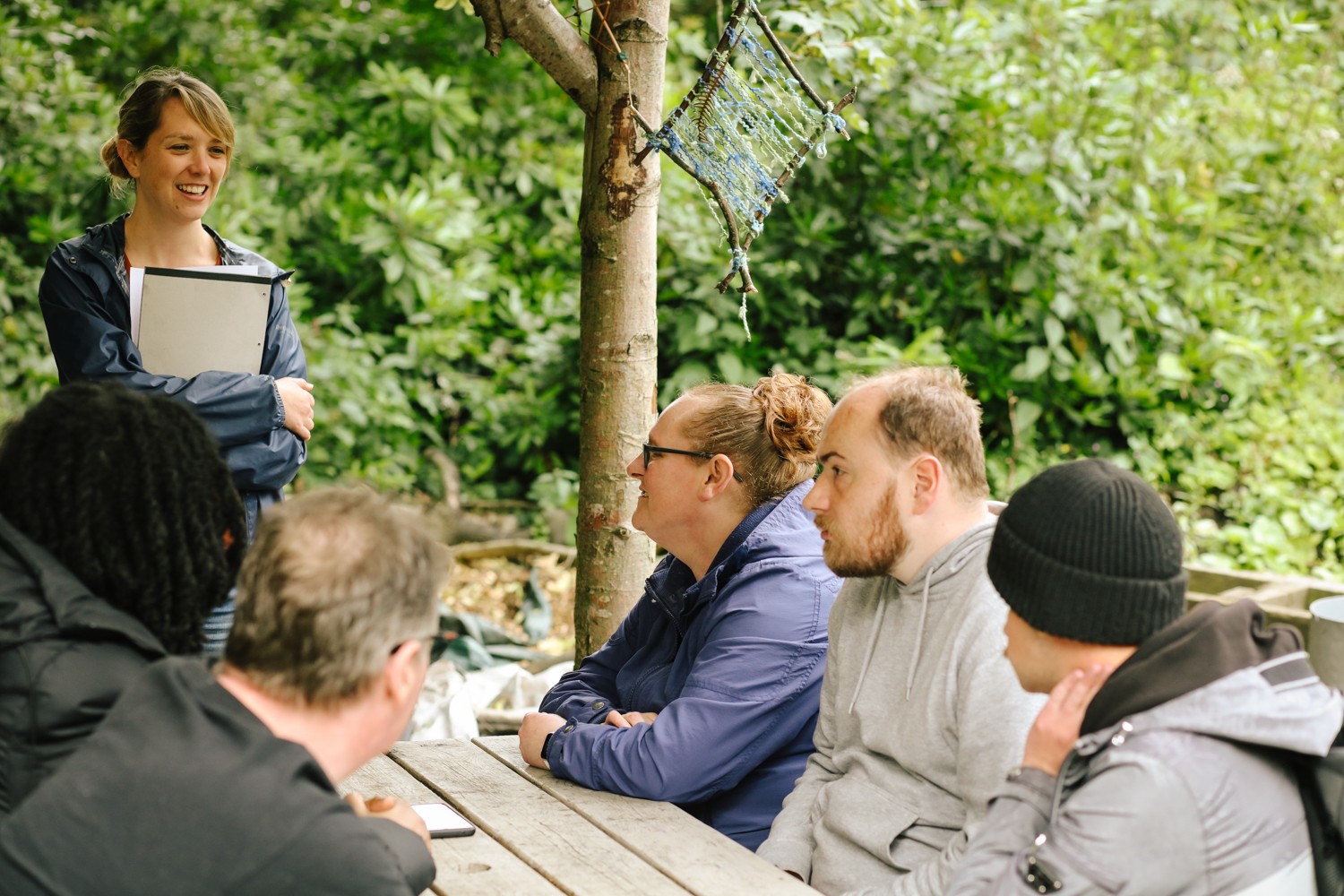Published on: 4th October 2022
 People using mental health services in Bury and Rochdale have been utilising their areas’ natural green spaces to improve their mental and physical health.
People using mental health services in Bury and Rochdale have been utilising their areas’ natural green spaces to improve their mental and physical health.
Pennine Care NHS Foundation Trust’s early intervention teams in Bury and Rochdale have been working with Lancashire Wildlife Trust in Bury and Petrus in Rochdale to support people experiencing psychosis and promote healthy living, socialisation, and access to services.
The social prescribing of green activities provides both physical and mental health benefits. For the mind, it lifts mood, increases focus and social engagement, and boosts confidence. All the activities organised bring a physical element too, keeping bodies active and promoting continuous exercise.
The groups have been visiting The Strand in Rochdale and Philips Park in Bury, taking part in group outdoor activities such as pond dipping, willow weaving, gardening, bird box building and more.
The project is also supporting an innovative study in Bury into green social prescribing and first episode psychosis. There has so far only been one study published on the subject nationally, making Bury one of only two places researching the topic.
Dr Natasha Goakes, clinical psychologist at Pennine Care NHS Foundation Trust, explained:
“We keep the groups flexible so they fit everybody’s needs and all the activities have learning and therapeutic qualities to them.
“Building bird boxes, recording our ponds’ wildlife, researching the local flora and fauna and maintaining green space all helps the local area so we all feel a sense of contribution to the community too.
“From a clinical perspective, green-social prescribing is beneficial to mental health in terms of connectedness to the world and other people - it’s a big help for feelings of isolation and lifting mood.
“Green social prescribing in first episode psychosis only has one previous study, so this is quite innovative - the idea of meeting your care coordinator in a different environment is a totally fresh approach. As opposed to ‘come to this NHS building and sit down in this chair’, it’s more ‘come and share this environment with me whilst we talk through the difficulties you’re facing’. To be one of the only mental health organisations in the UK studying this is quite exciting.
“It’s been incredibly successful, so much so that we want to expand it further, this will hopefully be the foundations of something bigger once we’ve built up momentum.”
Some enjoyed it so much they signed up for separate sessions with the Wildlife Trust. Patients who took part said: “I feel different, just being with people outside as made me happier.“My friend said I seem a lot happier, more positive, and that physically I look more well. As well as making me more comfortable around people, I’ve learnt new skills too – I never thought I’d go to the park and bring a log home and turn it into some coasters!”
Another added: “If you’re meeting in a building it can make you feel trapped and claustrophobic, being outdoors helps to take away that barrier and make talking feel more comfortable. I’ve also gained an appreciation for nature I didn’t have and have been looking after my local area, where previously I wouldn’t have bothered.”
Sarah Coogan-Hill, operational physical health clinical lead at Pennine Care, shared the positive impact her colleagues have witnessed in both areas:
“We’ve seen a real difference in the people who have taken part. With the team at Petrus, all the activities are tailored towards what each patient want to do. It’s important as we want to promote genuine engagement and not just funnel people into activities for the sake of it.
“It’s been really nice to see people pick up gardening as an actual hobby or discover a new interest in their local area’s wildlife. Importantly we’ve seen positive change in people before they come and after they have been taking part for a few weeks.
“Whilst many people can still be reserved, most are much more outgoing and happier after a few weeks. It’s genuine health progress that’s been achieved by thinking outside of the box and making use of the world around us.”
Jennie Lea, Wildlife Trust Nature and Wellbeing Senior Project Officer, has been working with Pennine Care’s patients and staff in Bury and has seen the value the sessions have brought: “It has been a wonderful experience. With the early intervention staff’s support, we’ve been able to offer patients the opportunity to experience a meaningful connection with nature in a fantastic local green space.“The group have demonstrated what positive regenerative outcomes can be achieved for both people and wildlife, when individuals are supported to spend purposeful time in nature.”